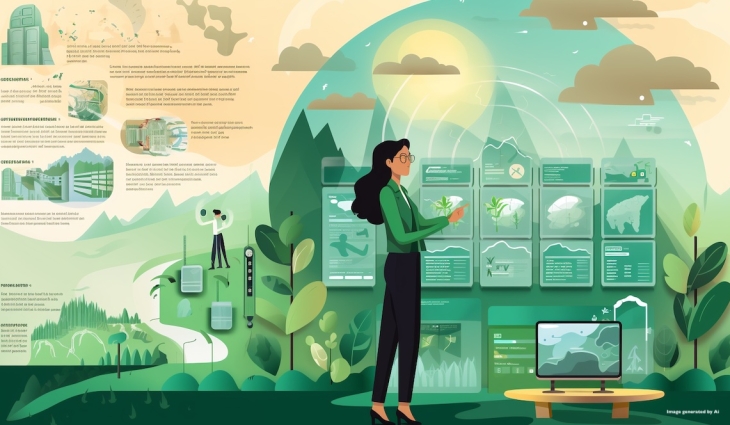The 2020s are shaping up to be a transformative decade for the global economy. Major trends like digitalization, sustainability, and changing demographics are catalyzing profound changes that will echo through coming decades. In this article, we’ll explore some of the key evolutions and revolutions that are redefining economics and business in the 2020s.
Introduction
The 2020s dawned amidst tremendous upheaval. The COVID-19 pandemic upended economies worldwide, supply chain disruptions became commonplace, and central banks pumped liquidity into the system on an unprecedented scale. However, the 2020s economic landscape was already primed for transformation even before the pandemic.
Powerful forces like aging populations, climate change, and the Fourth Industrial Revolution were gaining momentum in the 2010s. COVID-19 simply accelerated many changes that were already underway. As the 2020s progress, these dynamics will continue to transform economic systems and create new opportunities.
Digitalization Revolution
One of the biggest economic revolutions of the 2020s is digitalization. The Fourth Industrial Revolution built on the proliferation of smartphones, broadband internet and cloud computing over the past decade. Technologies like artificial intelligence, the Internet of Things, 5G telecoms and quantum computing will become mainstream in the 2020s.
Across every industry, companies are digitizing operations, assets and relationships. Seasoned players like Walmart and industrial conglomerates like Siemens are investing heavily in digitalization. Meanwhile, digital-first disruptors like Amazon, Netflix and Airbnb are redefining customer expectations. Incumbents in every sector will need digital strategies to compete.
The work landscape is also being digitally transformed. Automation is replacing routine tasks, enabling workers to focus on higher-value work. Remote and hybrid work models are becoming the norm, untethering many roles from traditional offices. And the freelance economy continues to expand, giving skilled workers new ways to market in-demand capabilities.
Sustainability Revolution
Sustainability has become an economic imperative in the 2020s. Climate change is an existential threat demanding urgent action across industries. Investors are increasingly applying ESG (environmental, social and governance) screens to investment decisions. And consumers are holding companies accountable for sustainable and ethical practices.
In response, businesses worldwide are rethinking products, supply chains, operations and business models. Automakers like GM and Volvo have committed to all-electric fleets. Retailers like IKEA and Walmart are targeting net-zero emissions. Oil giants are diversifying into renewable energy. And regulators are stepping up as well. The EU’s sweeping Green Deal sets out sustainability requirements for everything from agriculture to transport.
The 2020s sustainability revolution opens up new opportunities, from electric vehicles to plant-based foods. However, the transition also poses challenges. Carbon taxes and net-zero mandates have costs. Workforces require retraining. And sustainable sourcing can strain supply chains. Navigating the sustainability shift strategically will be critical.
The Asian Century
The economic center of gravity has been shifting eastwards for decades. But the 2020s could mark the arrival of what many are calling the Asian Century. The Asia-Pacific region now accounts for over a third of global GDP based on purchasing power parity. And Asian economies are positioned for robust growth.
Key drivers include favorable demographics, expanding middle classes and continued urbanization. China aims to double its economy by 2035 based on 2020 levels. India is projected to overtake the US as the world's second largest economy this decade. And the Association of Southeast Asian Nations (ASEAN) bloc has set a goal of becoming the world's fourth largest economy by 2030.
For Western companies, Asian expansion will be essential for growth amidst maturing home markets. Tech giants like Google and Facebook are vying for market share in India and Indonesia. Luxury retailers see China as their new frontier. And automakers expect electric vehicles sales to surge across densely populated Asian megacities. Understanding Asian consumer behaviors and forging local partnerships will be key.
Conclusion
The 2020s are primed to be a transformational decade for the global economy. Digitalization, sustainability and the Asia-Pacific region’s rise will catalyze both evolution and revolution across industries. Companies that understand these macro shifts, and strategically invest to capitalize on the opportunities they create, will be best positioned to thrive in the 2020s and beyond. The next ten years will test businesses, but also offer abundant prospects for those bold enough to lead rather than follow economic change.
© Ai and Sophie Escrivant - FCEM 2023


